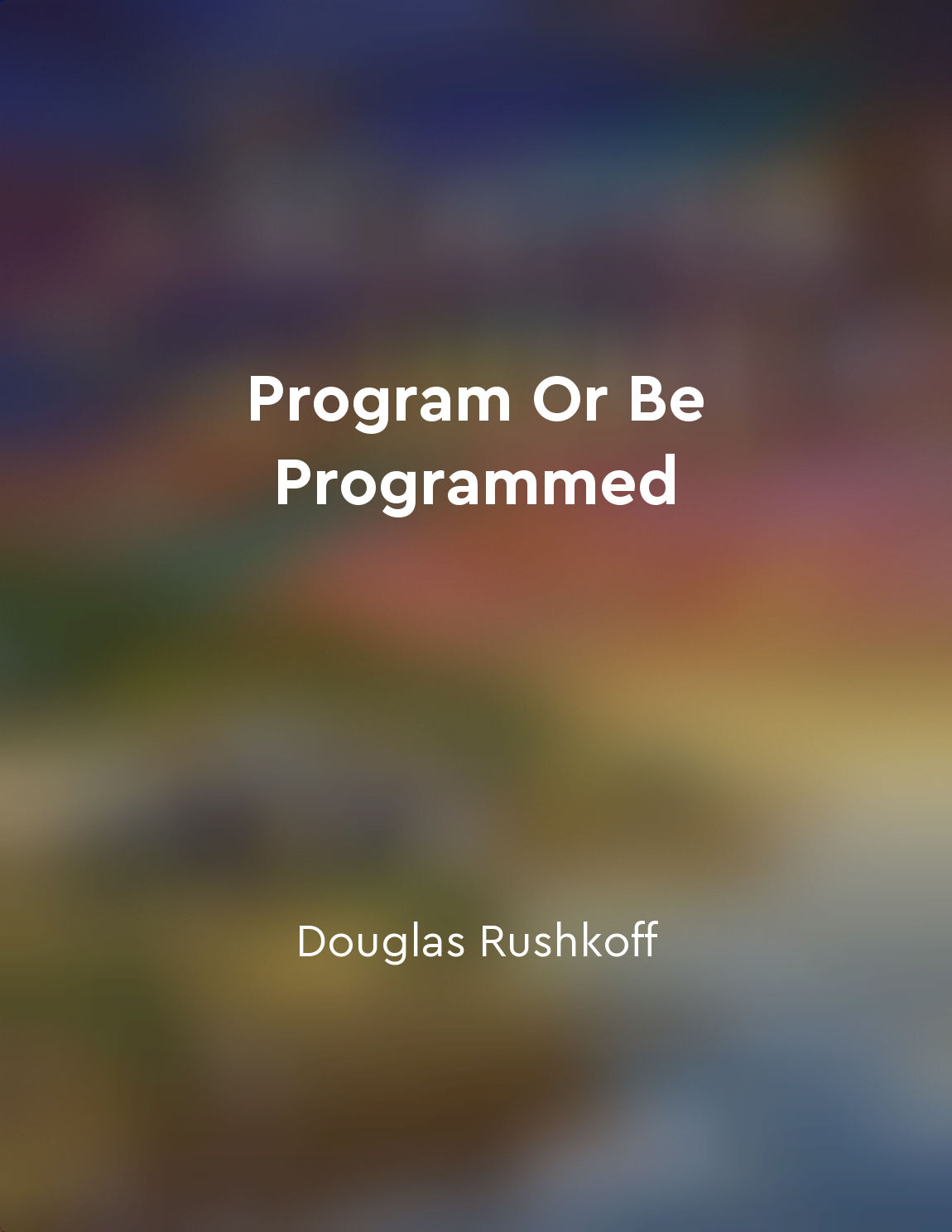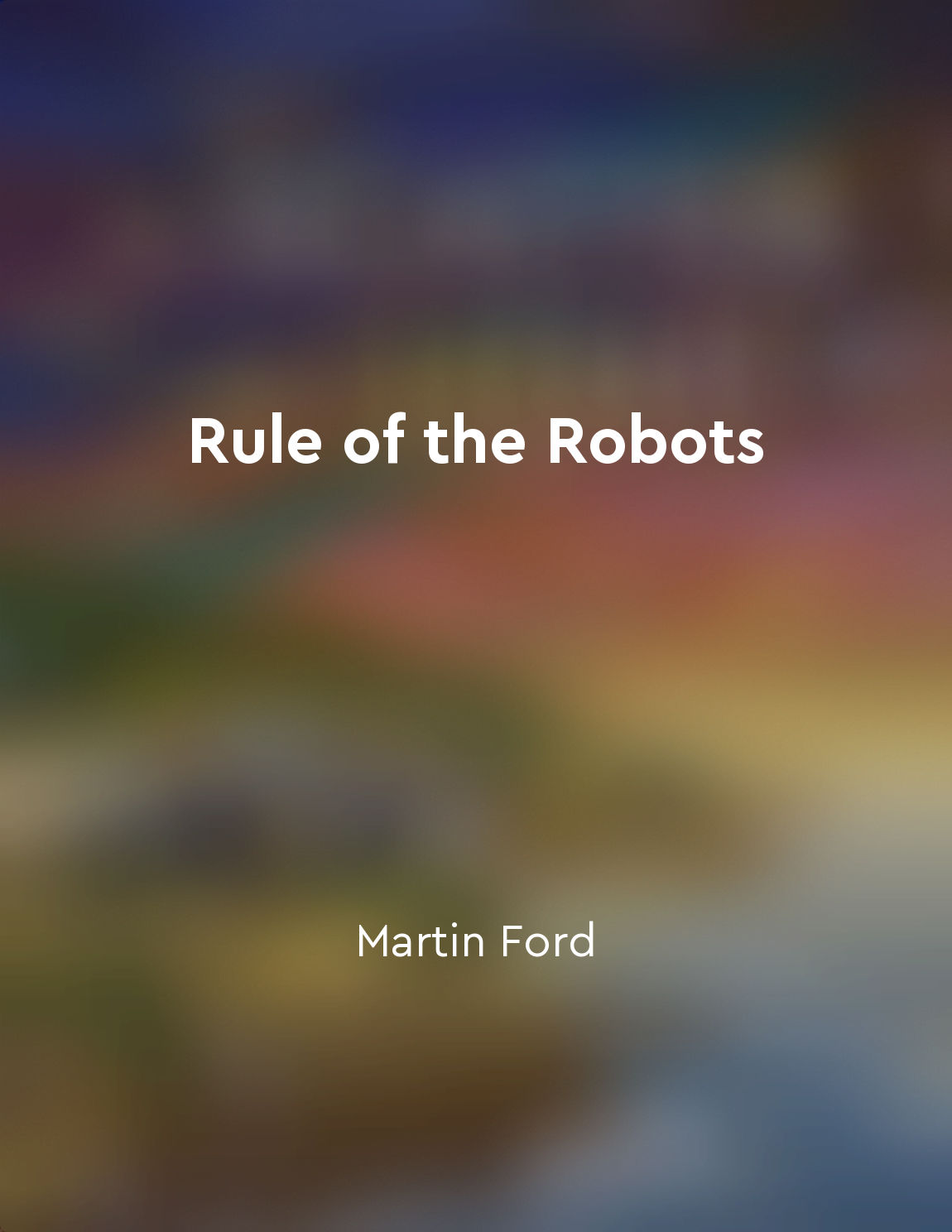The future of work will be defined by the relationship between humans and machines from "summary" of Rule of the Robots by Martin Ford
In the coming years, the nature of work will be profoundly shaped by the dynamic interplay between humans and machines. This relationship will determine the opportunities available to workers, the types of jobs that exist, and the overall structure of the economy. As technology continues to advance at an exponential rate, automation and artificial intelligence are becoming increasingly prevalent in the workplace. This trend has the potential to disrupt traditional employment models and redefine the way we think about work. One of the key implications of this shift is the displacement of human workers by machines. As machines become more capable and cost-effective, they are increasingly able to perform tasks that were once the exclusive domain of humans. This has the potential to eliminate many jobs outright, particularly those that involve routine, repetitive tasks. In the past, technological progress has generally created more jobs than it has destroyed. However, there is growing concern that the current wave of automation may be different, as machines are now capable of performing not just manual labor, but also cognitive tasks that were previously thought to be the exclusive domain of human intelligence. At the same time, the relationship between humans and machines also has the potential to create new opportunities for workers. As machines take on more routine tasks, humans will be freed up to focus on higher-level activities that require creativity, critical thinking, and emotional intelligence. This shift has the potential to create new types of jobs that are currently unimaginable, as well as to enhance the capabilities of workers in existing roles. By working in collaboration with machines, humans may be able to achieve levels of productivity and innovation that were previously unattainable.- The future of work will be defined by the extent to which humans are able to adapt to and collaborate with machines. This will require not only technological literacy, but also a willingness to embrace change and to continually develop new skills. Workers who are able to effectively leverage the capabilities of machines will be well-positioned to thrive in the future economy, while those who resist or are unable to adapt may find themselves at a significant disadvantage. As we navigate this period of rapid technological change, it is essential that we remain mindful of the evolving relationship between humans and machines, and work to ensure that this relationship is one of collaboration and mutual benefit.
Similar Posts

Digital technologies shape our individual and collective identities
Digital technologies are not neutral. They are not simply tools that we use to carry out tasks and communicate with others. Rat...
Technology is a tool, not a threat if used wisely
The central idea we must keep in mind when discussing the impact of technology is that it is a tool - a powerful tool, to be su...
Humans have been working forever
Since time immemorial, humans have been toiling away, engaging in various forms of work to survive and thrive. From the early h...
Automation can lead to overreliance on external systems
In our growing reliance on automated systems, we run the risk of becoming overly dependent on external technology. The convenie...
Transportation is evolving with autonomous vehicles
The way we move people and things around is on the cusp of a significant transformation. The rise of autonomous vehicles is set...
Automation offers new opportunities for creativity
Automation does not stifle creativity as some fear; rather, it opens up new avenues for creative expression. By taking care of ...
Automation is reshaping industries at an unprecedented pace
Automation is disrupting industries across the globe in a manner never seen before. The rapid advancement of technology has led...
Cybersecurity is a growing concern with smart machines
In the era of smart machines, the issue of cybersecurity looms large. As these machines become more integrated into our daily l...
Technology can discourage personal engagement
In our modern age, technology has become an ever-present force in our lives. Its reach extends into every corner of our existen...
Industrialization transformed economies and societies
The shift from agrarian societies to industrialized economies marked a significant turning point in human history. With the adv...


